When I was a kid, my father wrote a weekly column for the student newspaper at Michigan State University, where he taught. “The Doctor’s Bag” ran in the State News for six years, from 1969 through 1975. It was eventually syndicated and ran in 50 campus newspapers, with a circulation of around 600,000. What this means, in part, is that when I was little people used to ask me if my dad was “The Doctor’s Bag.” (That’s how they used to phrase it: Is your dad “The Doctor’s Bag?”) I had no idea what the column was; I just knew he wrote it. At some point, I gathered that it was a medical advice column answering students’ questions about all things health related. It wasn’t until I was an adult and Dad sent me copies of the entire run of the column that I sat down and read them.
I can hardly begin to describe how much I love those columns. I love them for what they reveal about college life in America in the early 70s. The questions students asked! They’re what you imagine—a lot of questions about sex and drinking and drugs. But there’s more to them, too, like the struggle of living in a dorm that has more people than your home town. The overwhelming impression you get, reading them all through, is how much they didn’t know, and the pent-up longing to ask someone who will take them seriously and give them real answers. I suppose if I’d read them as a kid I would have been horrified that my dad talked about this stuff, but you know, he was a psychiatrist, so it’s hardly like I didn’t expect him to talk about everything under the sun. As an adult, I’m impressed with how deftly he answers their questions.1These are crappy images: screenshots of pdfs of microfilmed papers. Sorry.
I love them, too, for the window into my father’s personality. They are both funny and earnest, just like he was. They lecture sometimes and joke at other times.
And they’re amazing for the controversies they raised. Honestly, reading the columns now, it’s hard to appreciate what the scandal is. But people wrote letters in complaining about them. The head of Albany’s Student Health Services complained:
In June 1970, a couple of Michigan legislators attacked his columns on the House and Senate floors for being “almost indescribable filth” and were outraged that they were being published at a public university. Think of the taxpayers! In 1973 the editor of a student paper was suspended for having printed both disrespectful pictures of Santa Claus and for running my dad’s column. Apparently a mother of a student once sent a letter to my dad chiding him to “think of your own mother before you put these letters in;” little did she realize that Dad did think of his mother and often mailed his column to my grandparents. (They were only disapproving when he appeared in the National Enquirer.)
Today is the 5th anniversary of my father’s death. I miss him. I’ve written before, glancingly, about him in a post on the intangibles of books. I have some of his childhood books, complete with his name carefully inscribed on the inside cover, and I cherish those books, even when I have no desire to read them. Those books are a connection to him. And when someone you love is gone, you need to find connections.
The last years of his life were not good ones. He had cerebral palsy, and while it didn’t really interfere with the bulk of his life—he was an avid biker, faithfully doing the DALMAC ride from Lansing to Mackinaw, even once as 4 days of 100-mile trips—it made his old age miserable. Well, I say old age, but I really mean his 60s, which is not very old. He was only 68 when he did, both much too young and after too much pain and suffering.
I am glad his death has receded enough that I can remember the joy of his life rather than the pain of its end. And I am glad that there are traces of some of that life still online. The digitization of college newspapers means that some of my dad’s columns are available for all to see, along with this Parade magazine piece about the youth of 1974, and, weirdly, a 1996 Weekly World News piece on “how to blow your stack without looking like a butthead!” I’m glad, too, that you can find some of the results that came out of a workshop on cerebral palsy and aging that we held in his honor. There’s a piece from Developmental Medicine and Child Neurology and, if that’s too long, a slide set on the subject.2This is a bit of an aside, but the cerebral palsy is a bit of a touchy subject for me: most research has focused on kids with CP, but you know what happens to a lot of those kids? They grow up, and then you’ve got adults with CP. As my dad grew older, his mobility decreased and the pain increased. There was no clear research to give him answers as to why this was happening, and the big CP foundation was not particularly interested in his overtures. He was just alone in his pain with no clear sense that any lessons were going to be drawn from it. So if you’re a CP researcher, or someone who has CP, or someone who knows someone who has CP, think about this and support researching into aging and CP.
There’s much of his life that isn’t out there—his photography, his hobby of rebuilding old cars, his bicycling, his woodworking. And his other psychiatric work, the stuff that got published in academic journals, is locked up in their hands (though your library might have a copy of the psychiatric glossary he edited for the APA in 1980). His columns, too, are probably still owned by the syndication company (someday I’ll retrieve his papers from the lawyers and see what his contract stipulated). The bits and pieces of the online traces of my dad add up to someone who is kind of him, but who isn’t all of him. And there was so much of him when he was alive.
It wasn’t until he died that I began to appreciate the staggering challenges of all the stuff we leave behind. There are his newspaper columns, thousands of photographs and negatives, the records of his life. Dad was a pack rat, which makes the task more challenging. And he was enough of a public figure that it’s hard to resist the feeling that someone somewhere might find this material interesting. Not for what it says about him, but for what it says about the times he lived through. Those Doctor’s Bag columns are full of nuggets. At some point, I’ll do something about that. If I was a researcher in the history of medicine, or the culture of mid-twentieth-century America, I’d find useful material in there. And there’s more, too. Maybe someone would want to know this story: My dad volunteered for the Vietnam War after he’d completed med school, but the army wouldn’t take him because of the cerebral palsy—he limped and certainly couldn’t run. And what happened a few years later? They tried to draft him, but he said no: you didn’t want me then, you can’t have me now. I have all that documentation, because that’s the kind of thing he saved. What do I do with that? Is that just family history, or does that mean something to someone else?
I don’t know what the answers to those questions are. Maybe I’ll just hang onto everything until it’s my kids’ turn to deal with it. Is that what happened to all those old books we have in libraries? The immediate family couldn’t bear to get rid of them and so they hung onto them until finally they because old enough to be wanted beyond the family? Maybe. At some point, I suppose, these things either won’t mean anything to anyone, and they can be tossed, or they will be become interesting through sheer survival through the ages. Maybe it doesn’t matter which.
I’m grateful that he wrote these columns and that I can still read them. I’m grateful that he had enough pride in them to save them and to pass them on to his daughters. I’m grateful that he loved us as much as he did, and that when it was time for him to die, that we were there by his side. He taught me how to write, how to use a camera, develop negatives, and print film. We argued about my curfew, butted heads because we were both stubborn, and watched Battleship Potemkin together. I loved him dearly. And I miss him a little bit less when I come across the traces of his life that have been scattered across the world.
notes
- 1These are crappy images: screenshots of pdfs of microfilmed papers. Sorry.
- 2This is a bit of an aside, but the cerebral palsy is a bit of a touchy subject for me: most research has focused on kids with CP, but you know what happens to a lot of those kids? They grow up, and then you’ve got adults with CP. As my dad grew older, his mobility decreased and the pain increased. There was no clear research to give him answers as to why this was happening, and the big CP foundation was not particularly interested in his overtures. He was just alone in his pain with no clear sense that any lessons were going to be drawn from it. So if you’re a CP researcher, or someone who has CP, or someone who knows someone who has CP, think about this and support researching into aging and CP.
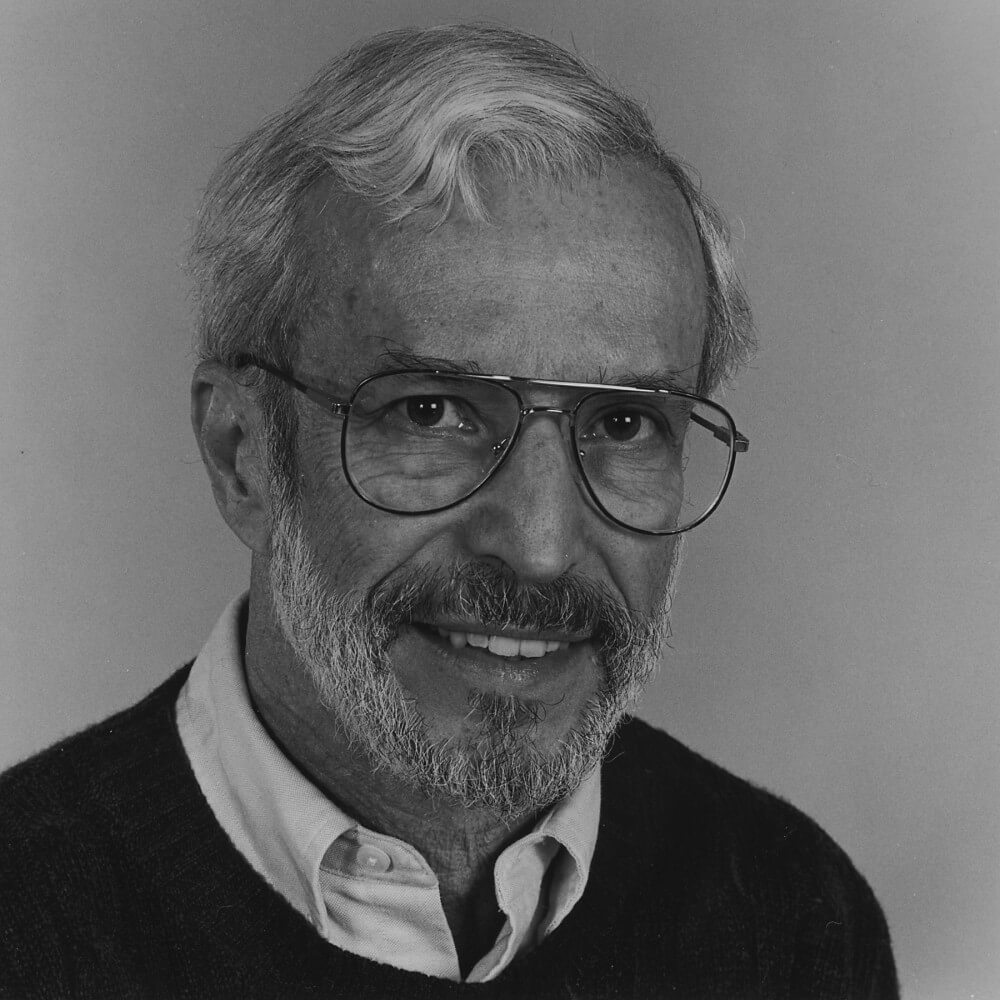

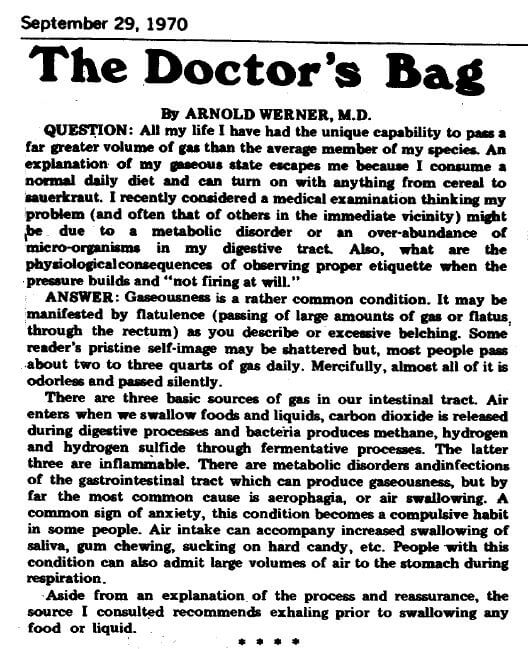
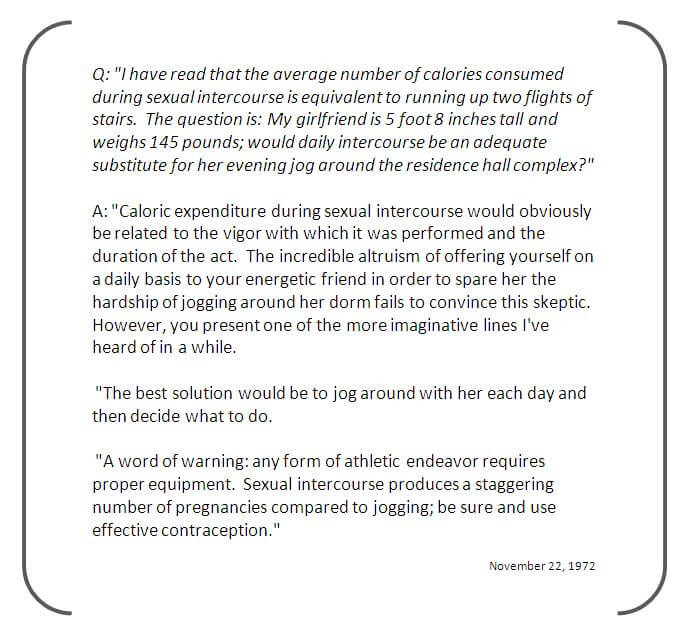
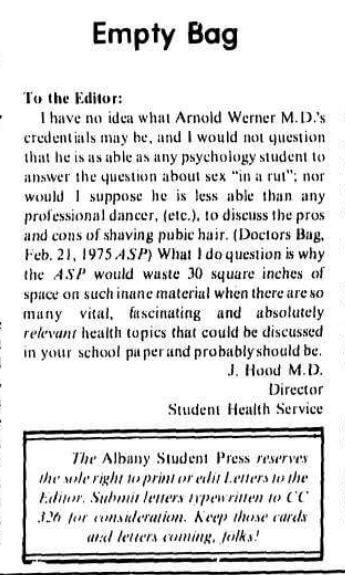
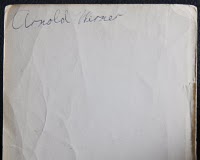

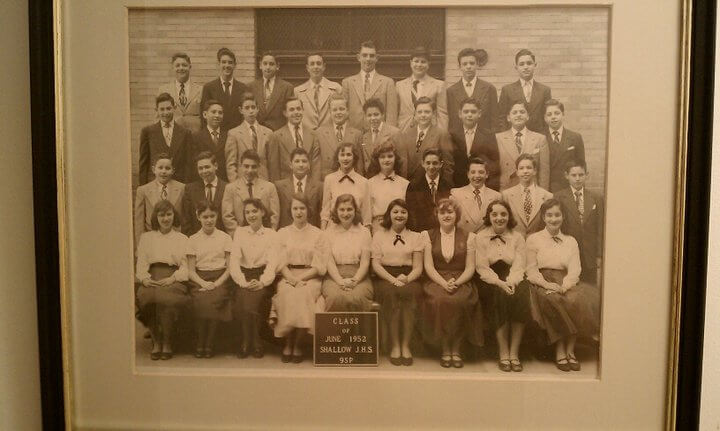
What we leave behind is a topic of enduring interest to me, also because of my father (who died in 1986). I have no delusions about his legacy, although a friend still uses some of his art books, and I once was in a body shop that had a peeling logo in the window that he had designed for an engineer friend. Rather, for me, it is a question of what to do with the physical remnants of an amazing person (or any person, but our dads were clearly amazing and we shall brook no dissent on the matter). Instead of newspaper columns and research papers, I have inherited paintings, posters, and an incredible amount of paper — everything from sketches to war-ration booklets and report cards. And that’s to say nothing of the 17 shoeboxes full of photographs of hunting dogs and dead prey from the 1920s that is part of my inheritance from my grandfather.
The fact is, objects aren’t very good containers of personhood. All this stuff is meaningful to me, but it won’t be to anyone else. And my grandfather’s things mean less to me than they did to my father. Artifacts from the distant past — a shawl from Aunt Ty Brown in the 1820s, the pince-nez from Uncle Chesley, whose surname I don’t even know — have only curatorial value to me. I do consider myself lucky to have paintings and posters, but newspaper columns preserve personhood even better.
Sorry to have rambled on about my own shit. That’s the risk of posting about dead parents, I guess.
I find it kind of reassuring that the stuff doesn’t hold the person. If it did, I’d be anxious that it get kept forever. I’m okay with my finding it meaningful as long as I don’t then pass on expectations to my children that they have to find it meaningful too.
And, yes, here’s to amazing dads!
Beautiful tribute to a person, a time and a deeply humane impulse to save (and savor) what keeps slipping away.
You are very fortunate to have had the father you did.
Would MSU be interested in having these things for their archives? When you are ready to part with them, that is. It sounds as if right now sifting through and following the paper trail is reconnecting you to your father and is very meaningful. Thank you for sharing some of his columns. I probably read some of them in the campus newspaper when they first appeared!
I just found your blog. As an MSU student and alumn, I enjoyed your dad’s column! What a treat to find that you are also writing on interesting topics in a public forum.
Good Afternoon Ms. Werner. Thank your for sharing this information about your father. I don’t usually write responses to things on the internet, but I thought I would, given your remembrance of your father. I had been meaning to do a search for Dr. Werner for some time, and finally did so today. I did my PhD in psychology at MSU in the early 80’s and received supervision from your father for patients that I tested at Ingham Hospital. I think that this was some kind of experimental arrangement between the MSU Psychological Clinic and Ingham Hospital. Anyway, I didn’t have a great deal of contact with your father, but 2 things have stuck with me for may years. At one point (and I don’t recall exactly what prompted it) he said to me and the 2 psychiatry residents that we should call out patients by their titles and last names because they would afford us respect and we should reciprocate. That has been with me for my entire professional career as a basic truth. A small thing (I know) but something that has important to me. The other thing that stuck with me was a teaching moment he had with one of the psychiatric residents about how the resident had diagnosed depression. Your father showed a clear way of conceptualizing the diagnostic process and an emphasis on accuracy over weak reasoning. I think back to that moment on occasion when I am struggling with diagnoses even now. Your father was a kind and man who treated a green psychology student probably better than he deserved. Best wishes.